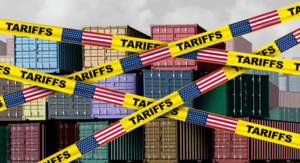
Dark Side of Monopolistic AI Innovations
The dark side of monopolistic AI innovations highlights the dangers of unchecked power and market dominance by tech giants such as Google. When Google integrated generative AI into its search engine, users encountered bizarre and potentially harmful inaccuracies, revealing the technology’s inherent flaws.
These mistakes, dismissed by Google as “hallucinations,” demonstrate how monopolistic control allows companies to prioritise market dominance over consumer safety. With little competition, tech giants can release underdeveloped products, leading to a decline in quality. As AI progresses, the need for robust regulations and competition is crucial to prevent exploitation and ensure user protection.
Dark Side of Monopolistic AI Innovations
In recent years, the field of artificial intelligence (AI) has witnessed remarkable advancements, promising to transform industries, streamline operations, and enhance user experiences. However, as AI technologies rapidly develop, a darker side has emerged, highlighting significant concerns associated with monopolistic practices in AI innovations. These concerns range from inaccurate outputs to unethical practices and the unchecked power of tech giants.
This article explores the dark side of monopolistic AI innovations in six critical points.
Read More: The Rise of the Finternet
Table of Contents
1. Inaccuracy and “Hallucinations” of AI Systems
The introduction of generative AI technologies into widely used platforms like Google Search has led to unexpected and often dangerous inaccuracies in the information provided. In May, Google launched an AI update that generated overviews summarizing search results. However, users quickly noticed that these AI-generated summaries were fraught with bizarre and misleading information.
Examples included advice to use glue for sticking cheese on pizza, endorsing the cardiovascular benefits of running with scissors, and falsely claiming that former US President Barack Obama is a Muslim. Such hallucinations in AI systems pose significant risks to users who may unknowingly rely on false or harmful information. This phenomenon highlights the dark side of monopolistic AI innovations, where the pursuit of technological dominance can overshadow the importance of user safety and accurate information.
Despite Google’s swift efforts to address these errors, CEO Sundar Pichai admitted that such hallucinations are inherent to AI technology and remain an unsolved problem. The company’s decision to scale back the number of users exposed to these AI overviews suggests a tacit acknowledgment of failure. The release of a technology so clearly unfit for public use raises questions about the motivations behind its deployment. This incident exemplifies how monopolistic power can lead to a reckless disregard for user safety.
Read More: Global Political Instability Signals for Rethinking Political Economics
2. Lack of Competitive Pressure
Google’s dominance in the search engine market, controlling around 90% of the global market share, allows it to act with impunity, releasing unreliable and unsafe products without fear of losing customers. The dark side of monopolistic AI innovations further exacerbates this issue, as Google leverages its position to push AI technologies that may not prioritize user safety or ethical considerations.
The absence of significant competition means that Google faces little pressure to maintain the quality and reliability of its services. This lack of accountability is not unique to Google but is a common trait among tech giants like Meta, Amazon, and Microsoft, each wielding significant influence in their respective domains.
Cory Doctorow’s concept of “enshittification” captures the trend where tech companies initially offer valuable and free services, only to degrade quality and increase prices once they dominate the market. This practice extends to AI innovations, where upgrades are marketed as progress but often worsen the user experience. Google’s AI overviews are an example of such “shitovation,” a term describing the intentional deterioration of products under the guise of innovation.
Read More: The Economics of War
3. AI as a Tool for Market Domination
The monopolistic tendencies of tech giants extend beyond releasing half-baked AI products. These companies use the dark side of monopolistic AI innovations to reinforce their existing market power, entrenching their dominance across various sectors. For instance, Google’s AI developments aim to strengthen its grip on digital advertising, while Microsoft and Amazon’s AI-driven demand for computing power secures their control over cloud computing services.
The concentration of power within a few tech giants raises concerns about the dark side of monopolistic AI innovations, which includes data-driven surveillance and manipulation facilitated by AI technologies. Users become unwitting subjects of data collection and exploitation, serving the interests of these powerful corporations rather than benefiting from the promised advancements in AI.
Read More: The Best 10 Data Analytics Software of 2024
4. Misleading Perceptions of Competition
The perceived competition among tech giants is often misleading, masking a deeper issue of market stagnation. While companies like Google, Microsoft, Meta, and Apple may appear to compete with one another, this rivalry is more a facade than genuine competition. Each firm seeks to fortify its sphere of influence, resulting in a tense but largely static coexistence. In rare instances of direct competition, such as between Microsoft and Google in web search, market share remains unchanged, reinforcing the status quo.
Collusive behavior further compounds the problem, as tech giants form partnerships reminiscent of agreements that maintain Google’s search dominance. Examples include Microsoft’s cloud-computing deal with Meta, Apple’s collaboration with OpenAI, and Google’s integration of AI technologies into Samsung phones. These alliances, currently under scrutiny from antitrust authorities, underscore the lack of genuine competition in the AI landscape.
Moreover, the dark side of monopolistic AI innovations becomes apparent as these companies prioritize control over innovation. This results in a limited range of AI solutions, often designed to benefit the companies themselves rather than the broader consumer base, leading to a technology environment that stifles creativity and consumer choice.
The race among tech companies to secure investor approval and assert dominance in the AI arms race leads to a dangerous deployment of untested technologies. This toxic combination of reckless growth and suppressed competition hinders innovation’s true potential, leaving users vulnerable to the adverse effects of monopolistic practices.
Read More: The Interaction Between Economic Policies and Identity Politics
5. The Need for Regulation and Accountability
Encouraging competition among tech monopolists to enhance safety and reliability is insufficient. The dark side of monopolistic AI innovations highlights the need for binding regulations to hold these companies accountable for their actions. The European Union’s Artificial Intelligence Act represents a crucial step toward regulating AI technologies, but more comprehensive measures are needed to foster genuine alternatives to the tech giants.
Policymakers must be imaginative in using tools like antitrust policies to challenge the dominance of these companies and promote innovation that serves the public interest. By investing in new players and technologies that can rival current monopolies, governments can create an environment where users are no longer treated as guinea pigs in the pursuit of profit.
6. Rethinking Innovation: A Call for Ethical AI
Innovation should not be pursued as an end in itself, regardless of its purpose or impact. The narratives surrounding AI innovations are often shaped by powerful actors with vested interests, leading to a skewed understanding of progress. A more nuanced approach is needed, focusing on how AI technologies serve society and whose interests they advance.
The dark side of monopolistic AI innovations underscores the urgent need for a meaningful conversation about AI’s role in society. Policymakers, industry leaders, and consumers must engage in discussions about the ethical implications of AI technologies and the responsibilities of tech giants in shaping the future. By prioritizing transparency, accountability, and user-centric innovation, society can harness the potential of AI while mitigating its risks.
Read More : Top 10 Most Uses AI Tools for Data Analysts
Bottom Line
The rapid development of AI technologies holds immense promise, but the monopolistic practices of tech giants threaten to overshadow these advancements. From inaccuracies and hallucinations to the unchecked power of dominant companies, the dark side of monopolistic AI innovations demands immediate attention. By fostering genuine competition, implementing binding regulations, and rethinking the narratives around innovation, society can pave the way for a future where AI serves the greater good.







